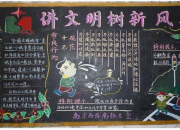保护熊猫的英语作文范文
时间:2021-08-31熊猫是我们国家的珍宝,我们应该保护它。以下是小编整理的保护熊猫的英语作文范文,希望对大家的写作有所帮助!
保护熊猫的英语作文范文【1】
The national level protection animal giant panda, have you ever seen giant pandas? Come and see! The following is a lovely giant panda, see how delicious it eats! The smile is so lovely.

You said, why so little panda, it is because of the destruction of the human disorderly cut down trees, don't take care of flowers and plants, destruction of the atmosphere, to lead to a drop in the panda, so we have to take care of the panda, the giant panda is herbivorous animals know, likes eating bamboo, but not as the giant pandas in the zoo keepers to feed their fruit. Wild panda anecdotes: in recent years, scientists found hidden cameras, male wild pandas left a breath marks on a tree, will lift a leg, like a male dog, and then the urine to the heights of the tree and. The higher the urine, the higher the social status of the male giant panda. Good play! Just like a dog! This is fun. Ax mountain in north of the city, we established a lush bamboo sea and the forest, form different from downtown chengdu "microclimate", in 1987, formally completed, now has developed into a specialized in endangered wildlife research and breeding, protection of education and education tourism, a nonprofit organization.
Do you know how pandas digest bamboo? Researchers have found that the giant panda's digestive tract is short and simple, and there is no such thing as a long, plant-eating animal with a thin gut and a complex stomach or a developed cecum. In addition, the giant panda's genome sequences announced in 2009, after they found the giant panda to the lack of some help in the digestive tract herbivores digest cellulose and hemicellulose (they are the main components of the fibrous plant diet) enzymes. This is confusing for researchers, and how does the lack of these necessary conditions digest bamboo?
Researchers use of gene sequencing technology, analysis of more than 5000 ribosomal RNA sequences, eventually in the giant panda, found a variety of digestive tract bacteria and some microbes are very similar to grazing animals. These help animals digest cellulose in their bodies, and seven of them are unique to the panda's digestive tract. Bye bye!











